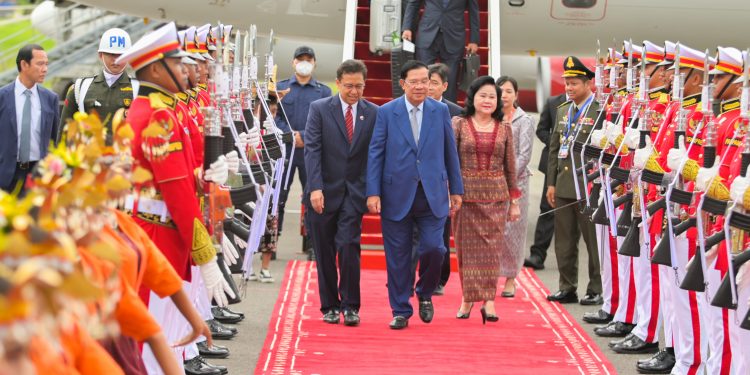Cambodia’s Prime Minister Hun Sen, one of the world’s longest-serving leaders, has announced his resignation, and his son, Hun Manet, will succeed him as prime minister on August 10. The anticipated announcement came after his party secured all seats in an uncompetitive election, further consolidating his power.
Hun Sen, 70, has ruled Cambodia with increasing authoritarianism for almost four decades. He first hinted at a transition in 2021, but the exact timing remained unknown until now. His eldest son, Hun Manet, was groomed for the role and had a prominent role in the recent election campaign.
In his announcement on state television, Hun Sen stated that stepping down was to avoid instability, but he will retain leadership of the ruling Cambodian People’s Party, maintaining ultimate control. Hun Manet’s succession has been planned for years, and he is expected to take over the leadership.
The recent election was widely seen as predetermined since the only credible opposition party was disqualified from the vote. The US and the EU criticized the election as neither free nor fair.
Hun Sen’s regime has been marked by the elimination of political opponents and a crackdown on civil space, including stifling dissent, restricting free speech, and shutting down independent media and NGOs.
While some speculate that Hun Manet’s leadership might be less repressive and more receptive to Western calls for human rights, analysts emphasize that he has not shown evidence of being more open. It remains to be seen how the transfer of power will unfold in a country where the current prime minister has wielded enormous influence over decades.


